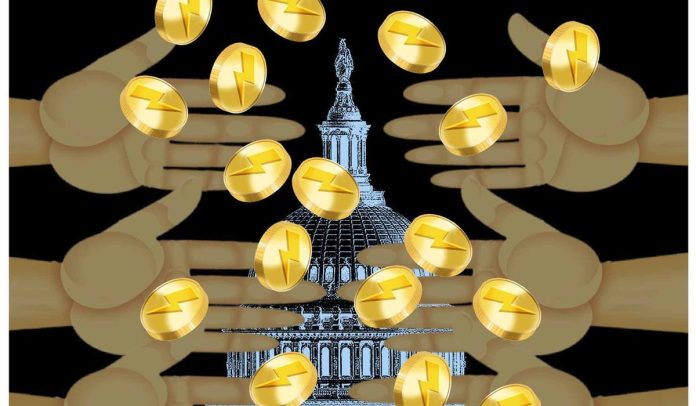OPINION: In the modern world, it is virtually impossible to live a successful life or operate a business without access to the banking system. Banks are vulnerable to the wishes of governmental regulatory agencies, such as those under the Obama Administration’s Operation Choke Point, which was designed to make it difficult for legal gun manufacturers and dealers to function by denying them banking services. Other legal businesses that have been affected include those in the fossil fuel industry, adult entertainment, and payday lenders.
Now, the Biden Administration is targeting banks and financial services businesses associated with cryptocurrency. This is coming from the Federal Reserve, the Securities and Exchange Commission, and other agencies beyond their legislative mandates. Financial writer and venture capitalist Nic Carter, and financial economist Tom Hogan (former chief economist of the Senate Banking Committee), have commented on the recent government attacks on the crypto industry.
The total value of all cryptocurrencies is estimated to exceed $3 trillion dollars, and many people are investing in them as a hedge against the potential collapse or inflationary spiral of government fiat currencies. Government debt burdens and liabilities have become unsustainable, and one of the easiest options is to debase the currency (inflation).
The advent of alternative private electronic money surrogates such as bitcoin offers a high degree of privacy and liquidity, and explains their popularity. Even though governments have a long-standing monopoly on money issuance, it is not necessary for them to have a monopoly. As long as private crypto or commodity-backed currencies can be exchanged for U.S. dollars for the payment of taxes, the government should not be involved.
Unfortunately, those in government are attempting to control these private currencies. SEC Chairman Gary Gensler has declared all cryptocurrencies, and even fully commodity-backed tokens, to be “securities.” This would bring the crypto industry in the U.S. to a near halt and drive it overseas.
The Institute for Global Economic Growth’s Richard W. Rahn believes that, as long as private crypto or commodity-backed currencies can be exchanged for U.S. dollars for the payment of taxes, the government should have no further interest in what the private sector determines is the best store of value, unit of account, and medium of exchange.

